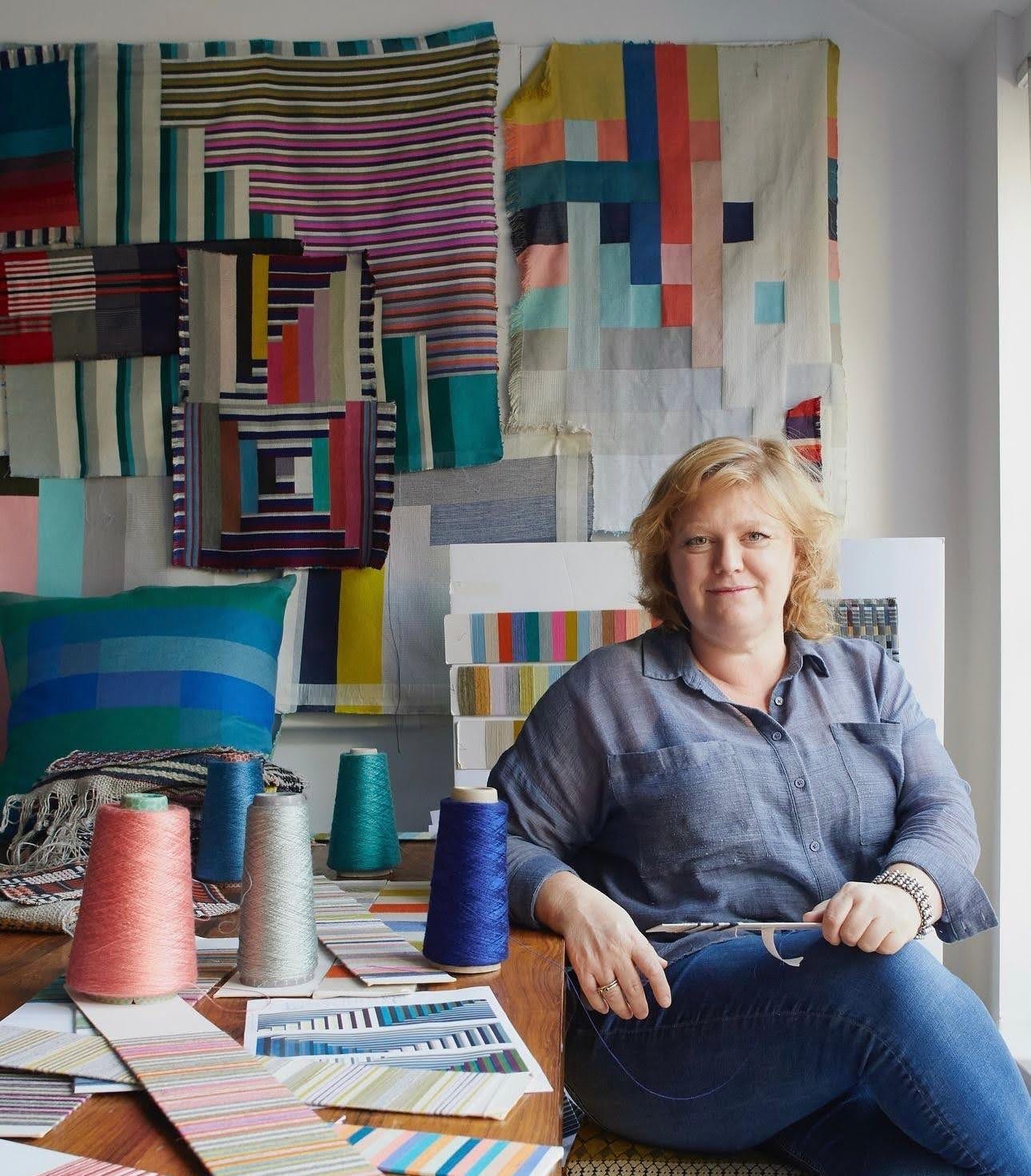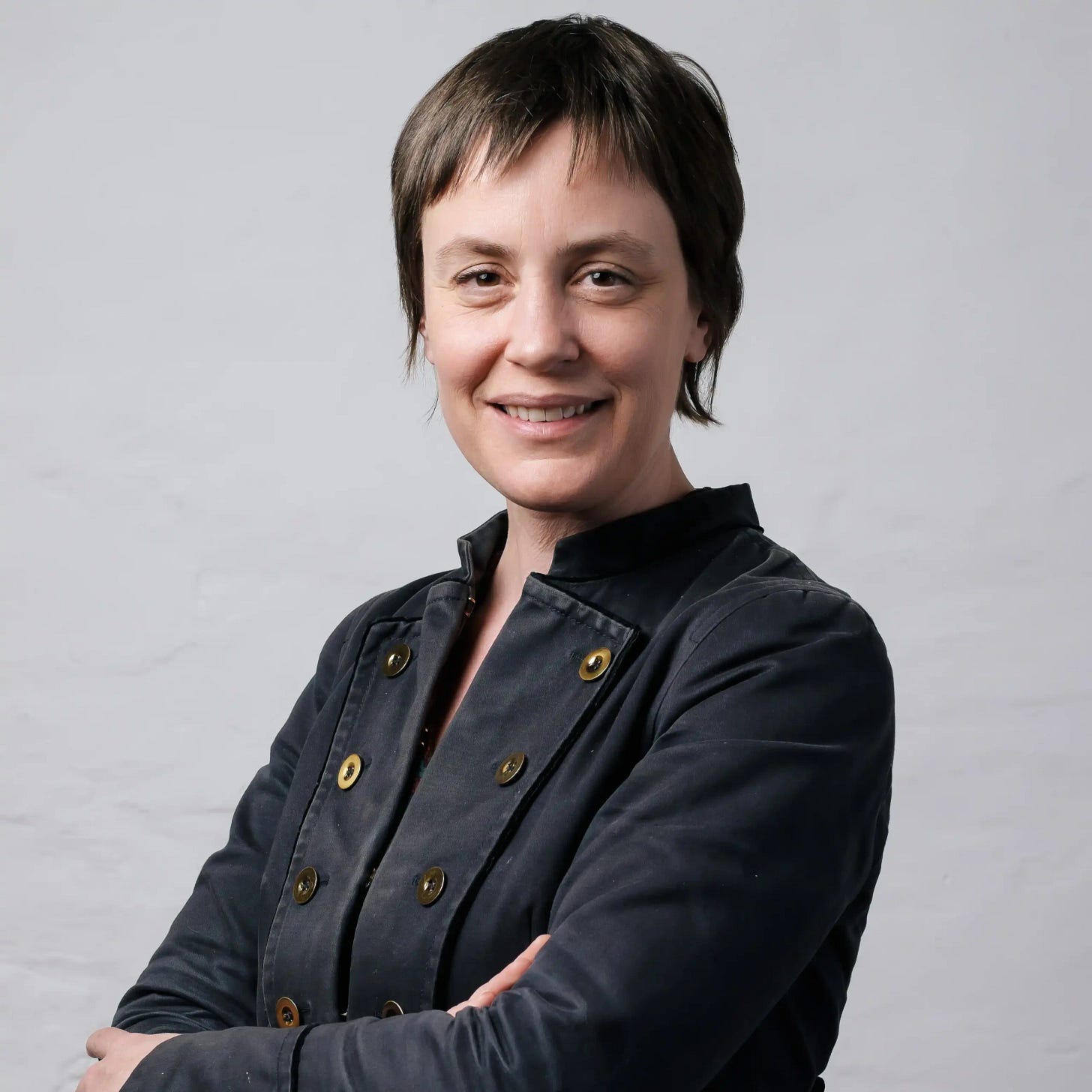Upgrade to an annual subscription for a chance to win my writing essentials • Forthcoming live events - details below
Hello,
Once a month - or often less, because we’re all busy - I have lunch with two good friends, the architect Annalie Riches and the textile artist Margo Selby. We met through a shared love of sea-swimming, and quickly realised that we had a lot more in common. All of us were prominent in our various creative careers, and all of us were solving the same problems: how to maintain creative practices while our working lives seem to constantly get in the way, how to balance family and work, and how to cope with being highly visible while holding on to our sense of integrity. We were all accidentally running businesses, and needed a space in which to talk about the tricky parts of that experience.
Before long, we began our lunches - ‘business lunches’ as we called them, tongue in cheek. They are a combination of advice-giving, listening, coaching, unburdening, celebrating and ribbing each other, plus a lot of laughter. They feel absolutely essential to me, a way of navigating my fairly strange life in the company of others who understand. I am very lucky to have them both.
Earlier this month, I persuaded them to record a conversation that captures the spirit of our lunches. We talk creativity, friendship, our collective inability to hold down a proper job, and - most of all - how important it is to have good friends who support you. Here’s the full transcript.
Katherine May: I thought people might find it interesting to meet the three of us as a trio, and that it would be a nice opportunity to talk about the value of friendship in creative work, and how we support each other, even though we do quite different things. I don't know what you think about that.
Margo Selby: It makes me feel all warm and fuzzy inside, Katherine. It's really lovely to acknowledge that the friendship is really important and valuable, and sometimes we can just take things for granted.
Katherine: Exactly. Well, let's introduce you first, so that people know who you are. So Margot is a textile designer extraordinaire who you may have seen in Sainsbury's recently. Okay, Habitat, but you have been working really hard on your more bespoke and unique work lately, haven't you? And been doing lots of commissions.
Margo: Yes, I've got two very different ends to my work. There's the very commercial stuff which is the textile design which you might see on the high street in places such as Habitat on the shelves at Sainsbury's, and then there's the other end, which is public art installations, big, immersive textile sculptures. So they're very, very different. But they're both about bringing colour and pattern to people's lives to add a bit of joy and a bit of an uplift.
Katherine: So, Annalie, you are an award-winning architect, currently sitting on the RIBA Stirling Prize shortlist for the second time, and you won the last time. But you are pretty unique in your drive towards social housing and ecological social housing as well. Do you want to say, better than I can, what you do?
Annalie Riches: So we do mostly housing or groups of housing, neighbourhoods. And there's always a drive towards sustainability. I mean that word's got so many meanings, it's quite an overused word. But I think our expertise really is about low-energy homes and retrofit. Carbon is what we measure it by. So all our projects push for that. It would help if there was a bit of help from the Government to push for it.
Katherine: It's surprising how few people haven’t got that right at the front of their agenda, I think.
Annalie: I find it surprising, because it's one of the things that we really need to do.
Katherine: Yeah, it's horrifying.
Katherine: So after this, will have one of what we call our business lunches, which I thought it might be interesting to talk about, because I don't know about you, but I find it so valuable to get together and to be able to talk about our work. And I think because we're all in slightly different fields, but maybe working at the same level in those different fields I feel like we can be really frank with each other in a way that maybe I wouldn't be with another writer.
Annalie: I was thinking about this when you suggested it as a topic. I'm in a very male-dominated business and there aren't that many women who I could probably talk to. If I do talk to them, I'd probably get really down into the nitty gritty of things, and I think I'm able to talk about the big-picture much more.
Margo: I think that we're all creative in our own way, whether it be, you know, designing buildings, writing books, or textile design. But I think creativity can also be applied in a broader sense to how we kind of run our lives, how you creatively bring different bits of life together with, like, how you manage people who work for you, how you manage your family and your children. I don't know if I should use the word manage, but I think we all are managing in one way or another.
Finding the balance
Katherine: I think it comes up so much for all of us like, how do you find that balance? It's a miracle we all managed to get together today, really, because we are all so busy. And it is really hard. And one of the really hard things is making family life work as well, and not just work as in ‘Oh, I've got it all structured’, but feel fluent and lovely and warm, rather than constantly kind of trying to cram it in. That's a big thing for me.
Margo: It's important to switch off. It's important to compartmentalise and be able to switch off from work when you're with your family so that it doesn't encroach into their time so that you can be present. I think I try really, really hard to leave work at work.
Katherine: You’re good at that!
Margo: I'm not too bad at it, because I find it hard to focus, anyway. And so if I've got work stuff going on in my head when I'm with my family, that's gonna make me even less present than I might normally be. And so I have to really try to make sure that I ring fence time with my family, where everything else gets left behind.
Katherine: Do you Annalie? I think you're more like me in that you find it harder to switch off.
Annalie: I do the thing that when I wake up at 5 in the morning it starts my brain off trying to resolve things. It is harder to switch off. I think it hasn't helped that we've been building a house that's taken up a lot of headspace anyway, it's nearly done.
Margo: Waking up in the morning, those times when you're woken up with anxiety about what the solution is, or really trying to grapple with a different idea. I think that's when really exciting work happens for me. When I've made my most exciting work, that's when I have the sleepless nights, and it's because you care so much because you really, really want something important or good to happen with what you're doing and that will intrude in the night.
Katherine: I'm right there at the moment, I'm at the end of the first draft of my book, and my head is just full of nothing other than book, and it wakes me up at 3am every morning. Sometimes I get back to sleep, but most of the time I'm just getting up and getting on with it. I'm taking it as an opportunity, because that level of obsession is actually really necessary to make the work. I love to hear about other people's routines, and everyone's got it really compartmentalised, somehow. I've never been able to do that. It has to flood over the whole of my life, or I've got it nowhere at all; I'm disinterested. It's very binary for me, and I'm right in the flood right now.
Annalie: When I’m waking up, I can just feel it happening, the gears starting. But there is a moment between waking and sleeping where your brain is untethered and you do seem to be able to think through things quite differently. I think it's quite precious time. I can solve loads of problems when I'm half asleep.
Margo: Lovely. That's brilliant.
Annalie: My best time of the day.
Margo: You've also In the past, talked about solving problems, through walking.
Annalie: Well, I can't seem to sit and look at a blank piece of paper If I have to write. I'm terrible at writing, but if I have to do that, I walk and write.
Katherine: I increasingly think I'm terrible at writing - people that aren't writers write way more than me. I do worry. But yeah, walking. Walking is so important for me, and walking alone in particular, like having that open space - it's almost like being able to see the horizon is important. Sometimes I think this has a very calming effect and moving kind of processes that nervous energy that comes when you're trying to get too much done. And just not having anything in front of your face. It definitely helps the thought process.
Keep reading with a 7-day free trial
Subscribe to The Clearing by Katherine May to keep reading this post and get 7 days of free access to the full post archives.






